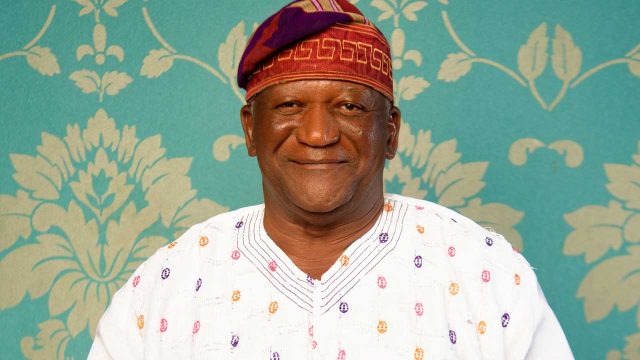
By Pius Mordi
Newton Jibunoh is famous for his daring multiple crossing of the Sahara Desert. The first time was in 1966 at just 27 years when he drove solo from Lagos through Kano and on to the treacherous Sahara Desert to London. He did it again in 2000, again, alone. The third and final time was in 2008, this time he was joined by five young people.
It was a daring adventure at a time the Sahara even though had not been overrun by bands of bandits and soldiers of fortune mainly of Tuareg extraction was reputed as the most inclement desert in the world. It the course of the Sahara crossings, Jibunoh saw the extreme nature of the environment, how many hundreds of square kilometres of land are lost to the desert yearly and what awaited the future. On each leg of the crossing, he saw bodies of people, not killed by bandits but those who lost their bearing and succumbed to the extreme desert weather. The experience inspired him to set up the foundation, Fight Against Desert Encroachment (FADE), his mission targeting desertification, climate change, poverty, migration, and conflict.
The Desert Warrior, as he became popularly known, is now 86 years and still as fit as fiddle. What he saw of the devastating nature of desertification has triggered alarm bells in his environmentally knowledgeable mind.

As an elderly community leader in his hometown, Akwukwu-Igbo in Oshimili North Local Government Area of Delta State, he is now overly worried by the indiscriminate expropriation of community’s lands in many states. Reminiscent of what obtains in other communities not just in Delta, thousands of acres of forests and farmlands are being bought up by speculators who entice the poor elders in the communities with money under the guise of setting up “housing estates.” Despite the fancy names given to such ventures, Jibunoh saw through the charade: it was sheer land grabbing, unbridled sales and expropriation of ancestral lands.
In his own community, Jibunoh saw farmers being stripped of their farmlands as greedy elders were easily swayed by the cash brought to the elders by the profit seeking groups and persons who usually have local collaborators. The dangers ahead are already manifesting. There is a gradual onset of reduced forests available for farming as the new owners fence off the lands for their “housing estates”, carve out numerous of plots and advertise them for sale. The plots are sold at ridiculously astronomical prices with the organisations raking millions as profit without adding any value to the land or providing infrastructure.
“The land-grabbing crisis calls to mind the warnings about rising sea levels and land subsistence that have devastated various regions of Nigeria. The degradation that follows land-grabbing will have dire consequences in the next two or three decades, and by then, it will be too late for ordinary people to escape. Many individuals do not realize the consequences of their decisions, especially when lured by immediate financial incentives from these cartels”, he cautioned in a recent interview. He recounted instances where community members accepted small sums for their ancestral lands, only to witness those lands being resold for astronomical amounts.
Jibunoh’s use of his hometown basically applies to all the communities in Edo, Kogi and Ondo states as well as Rivers, Akwa Ibom, Bayelsa and Cross River states which are already beginning to contend with flooding and environmental degradation. Communities near the coastline are on the verge of being washed into the sea.
In most communities facing almost violent disagreements, the contentious issues revolve around indiscriminate expropriation of forests and farmlands by elements among the elders and chiefs who collude with land speculators.
At Ubulu-Uku in Aniocha South Local Government Area also of Delta State, a community that is yet to fully recover from the pangs of the killing of its monarch in 2016 by Fulani cattle herders, elements with the town’s leadership are alleged to have orchestrated a crisis within its community development association in a bid to create an acrimonious atmosphere that will make land sales less contentious. As if he had fore knowledge of what was coming, its young monarch, His Royal Majesty, Obi Chukwuka Noah Akaeze, in an address in New York to his subjects in the United States during their annual convention cautioned on land expropriation.
Frowning at the indiscriminate land sales in Ubulu-Uku, he called for “strict guidelines” to be evolved to guard against unregulated sale of lands in the community for individual gains. Rather, land sales should be supervised to ensure that such transactions are in tandem with the interests of the community.
“Lands”, he said, “are not just individual property, they represent our identity, culture and legacy. They represent the past, present and future of our people. It is therefore crucial to take decisive action to protect our lands from those that want to transact with it for their personal gains.
“To secure our lands for current and future development, we must enact strict land transaction regulations. We need to create a transparent and accountable measures to ensure community lands are used for the benefit of the people”, the monarch stated.
On account of the massive expropriation of farmlands, some people are calling on the government of Delta State to enact laws that will protect ancestral and community lands. The platform usually used for carrying out such scheme is the claim of building a “housing estate”. In truth, there is no estate built or facilities provided therein. The entire transaction revolves around buying ancestral lands and selling them at astronomical prices to buyers. The call for government intervention is in tandem with Agbogidi Chukwuka Noah Akaeze’s stance that strict guidelines be set to control land sales in his domain.
Jibunoh is also in favour of guidelines and regulations. “These lands are reserves from the days of Western Nigeria. The details are available and you will see areas that are mapped out as well as the areas from Midwest to Bendel and now Delta State.
“Show me your plan that will bring development, help employment, and stop people from exploiting the forests. I have asked them to show me their plan but none of the cartels and their agents have been able to do so. I am a conservationist and I know what goes with conservation all over Europe and even in some African countries. I just returned from Morocco. In that country, if you want to embark on development, all that the authorities will ask you is to ensure that there is a school, hospital, playground and other facilities in place. If you can package all that will benefit the community, bring it and we will look at it.
“What most of the land-grabbers are doing is buying from the communities at cheap rates and then reselling to land-grabbers for millions. This is why they do not want to bring any plan they have for development”, the conservationist said.




GIPHY App Key not set. Please check settings